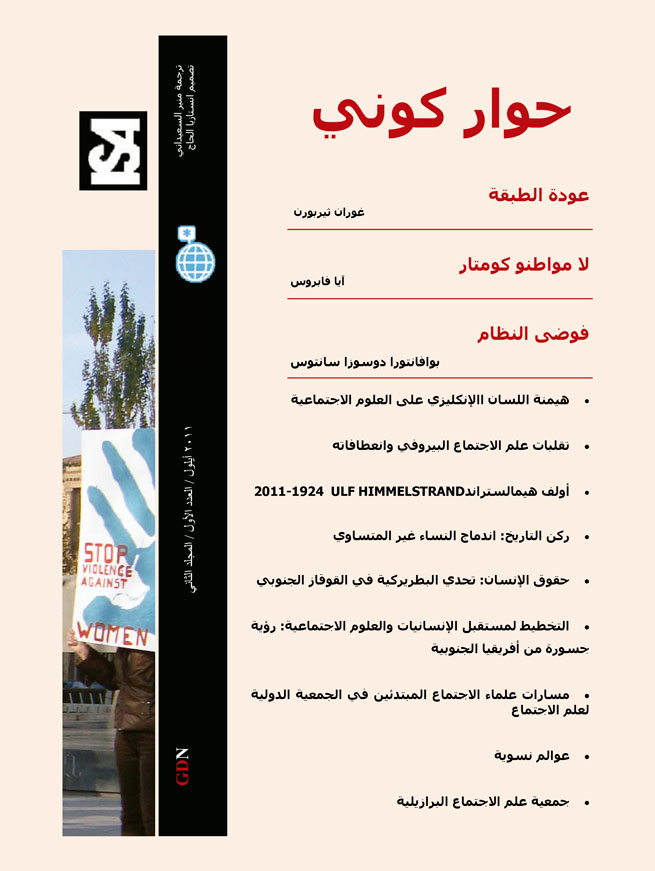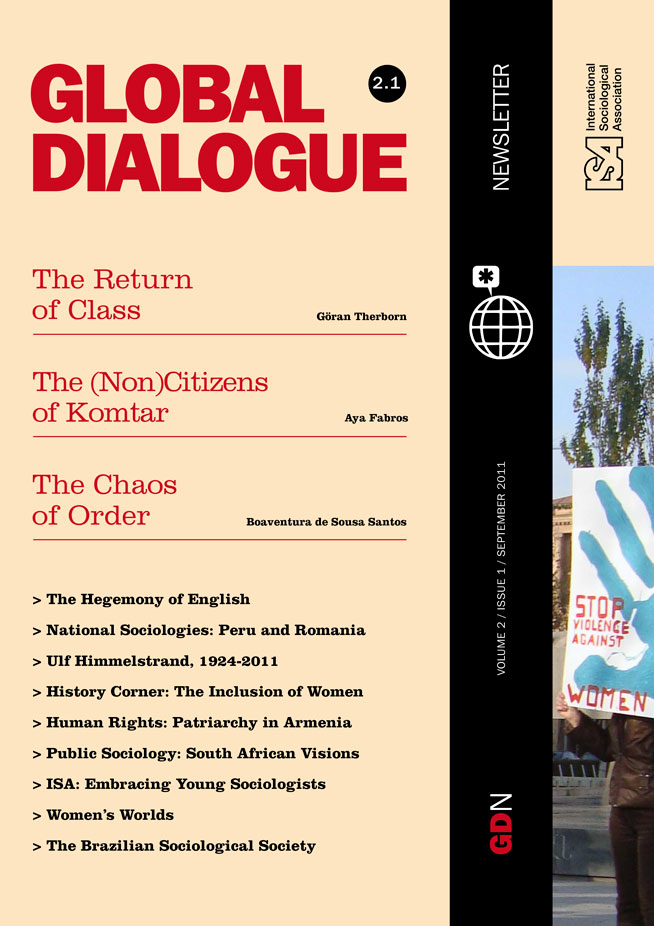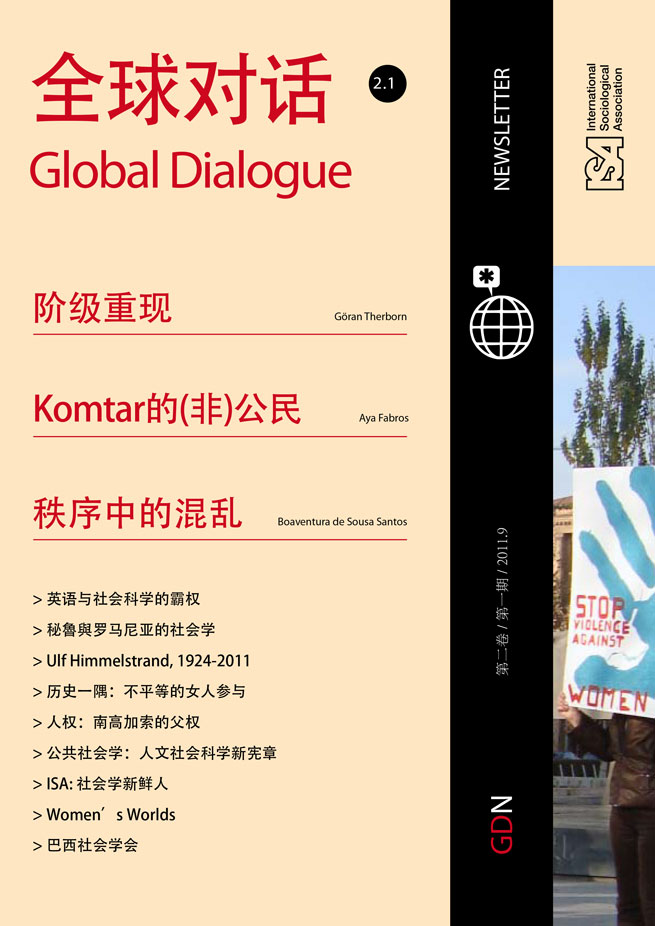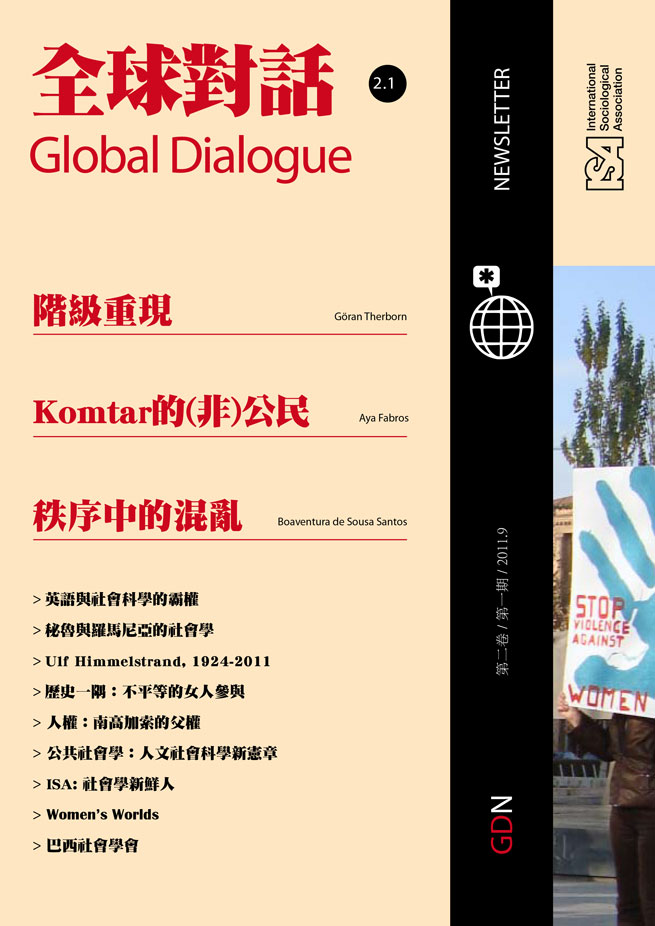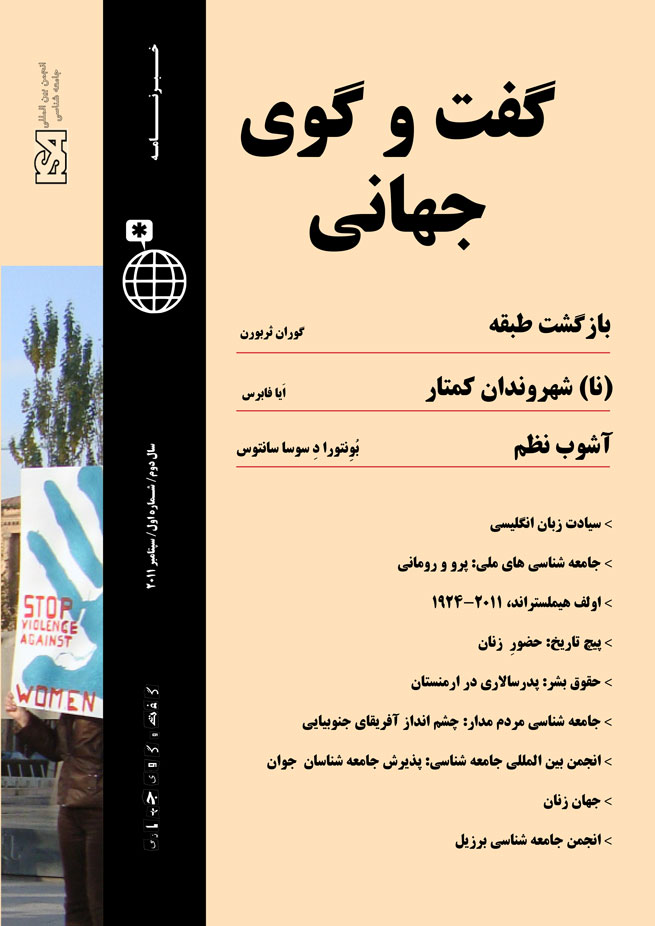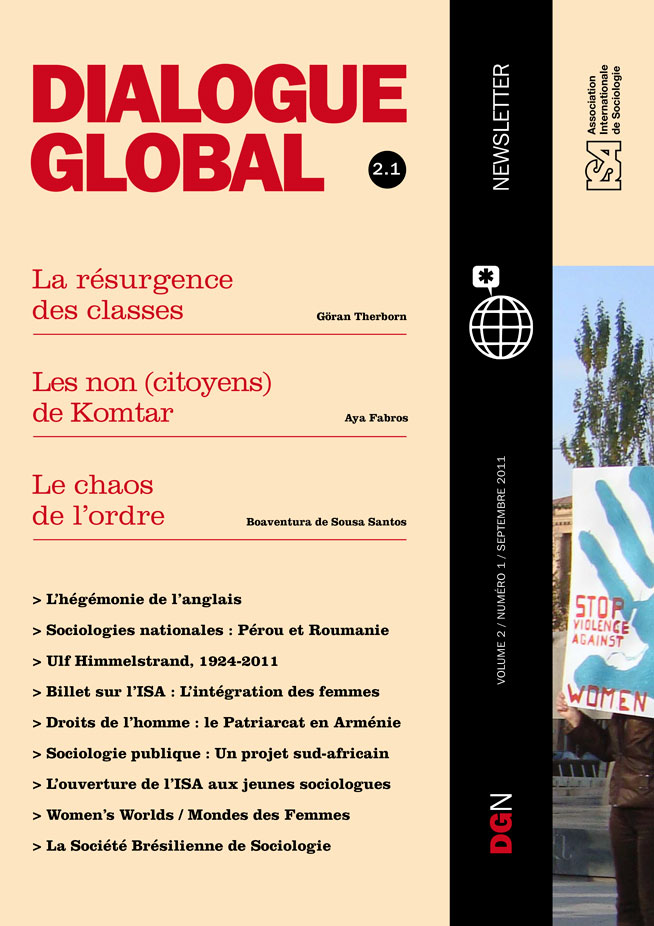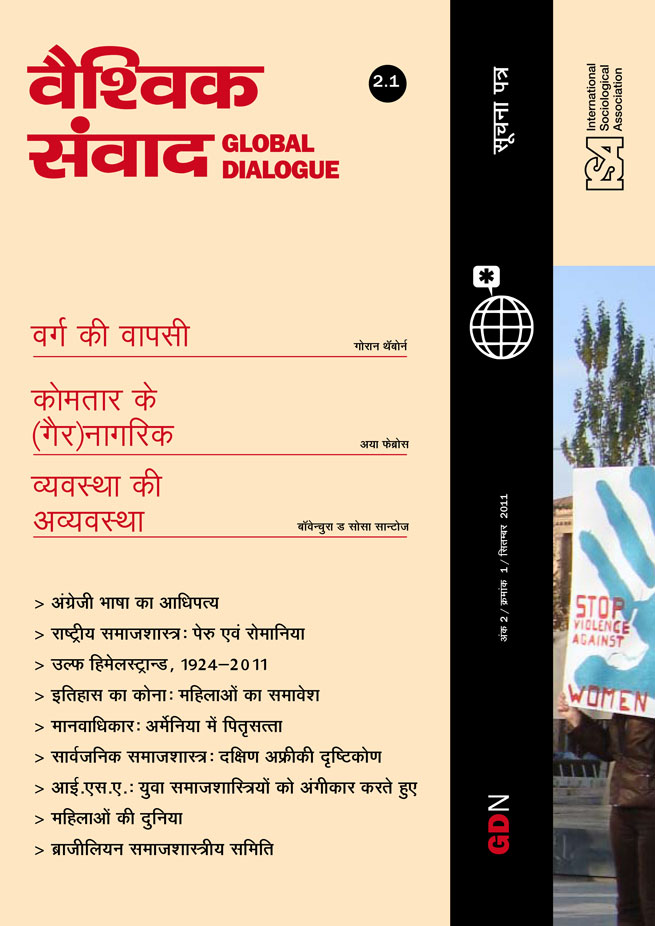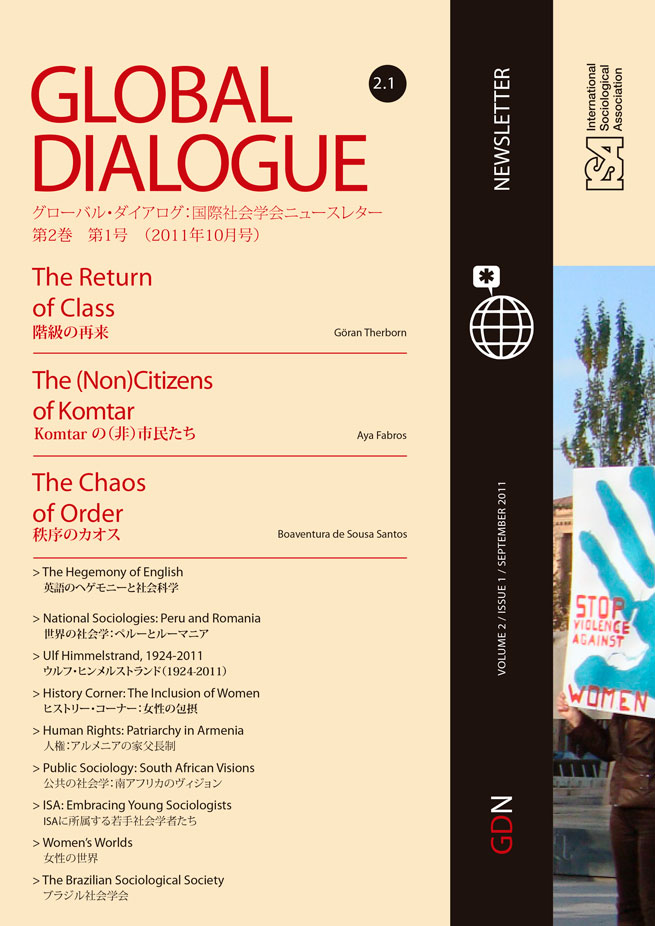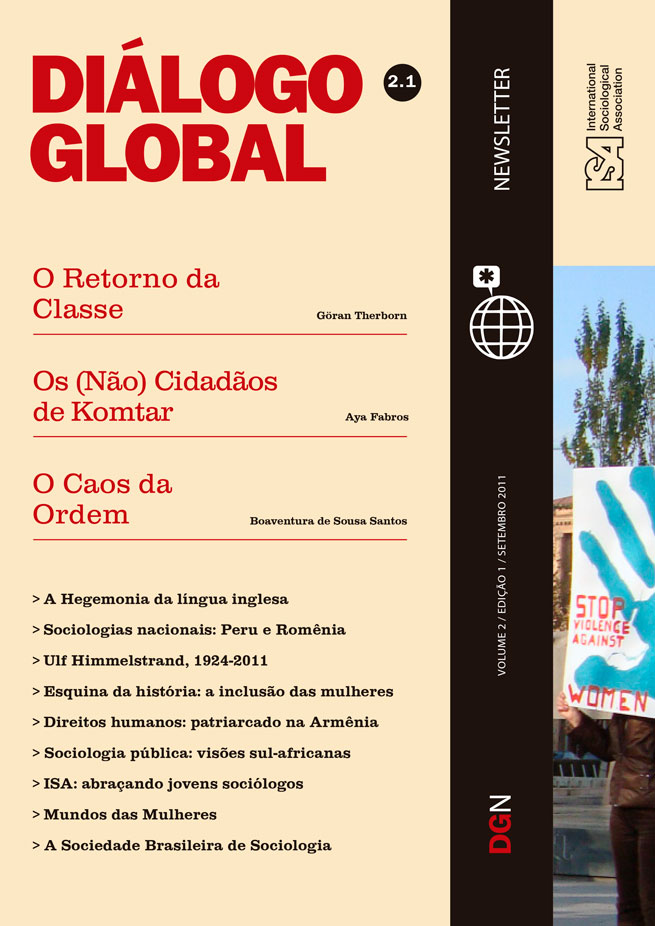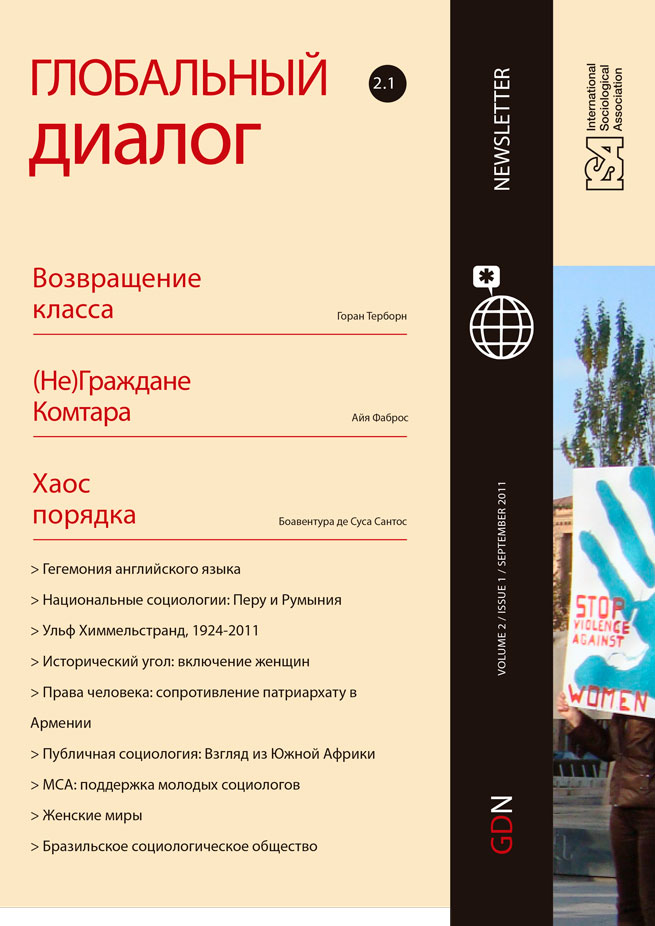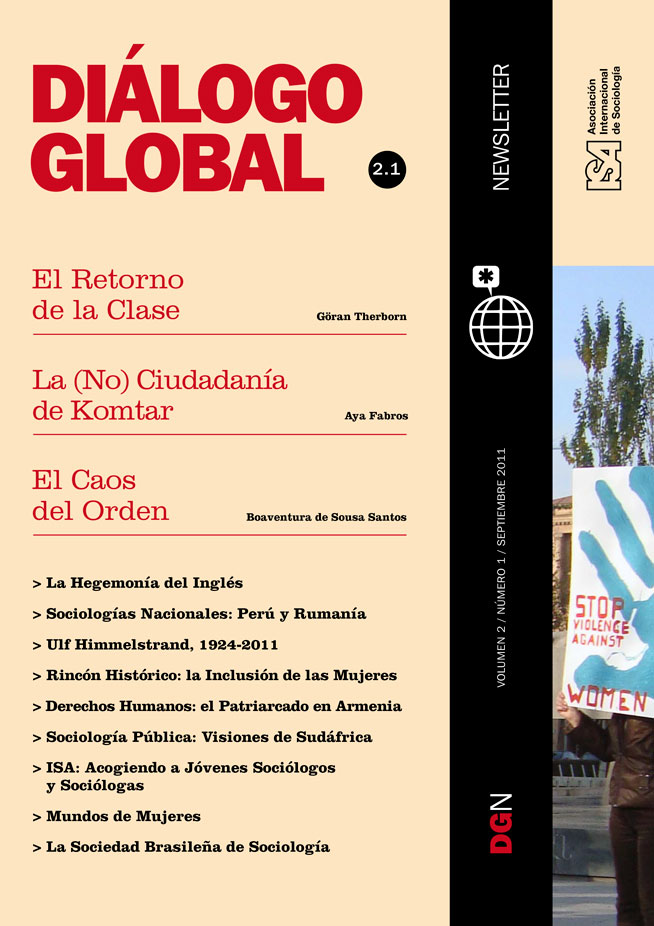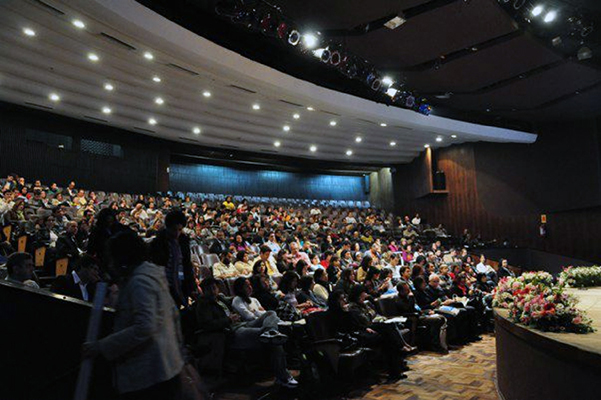Read more about Reports and Conferences
Women’s Worlds
by Ann Denis
Early Career Sociologists in the ISA
by Emma Porio
September 30, 2011
The XVth Congress of the Brazilian Sociological Society (SBS) took place in Curitiba from the 26th to the 29th of July, 201l. Around two thousand sociologists gathered together in the capital city of the state of Paraná – well known for the successful implementation of innovative urban programs – to discuss “Changes, Continuities and Sociological Challenges”, the general theme of the meeting. As the President of SBS, Celi Scalon, observed in her opening speech, taking into account that ours is a discipline constantly challenged by its historical context, the congress theme invited participants to seize the opportunity and take stock of our theoretical and methodological resources, in order to be better equipped to fulfill our public role.
The program committee assembled an amazing combination of themes and approaches, involving Brazilian sociologists from all over the country as well as engaging several foreign colleagues in fruitful dialogues. The topics addressed by the keynote speakers covered a vast array of issues. Margaret Archer, Seyla Benhabib, Robert Mare, Tom Dwyer, Werneck Vianna, and Maria Nazareth Wanderley provided inspiration for lively theoretical, methodological and policy debates. Werneck Vianna, one of the two sociologists awarded with the life-time career prize, in his address “Society, Politics and Law”, discussed the tasks fulfilled by legal institutions and procedures in both the old Brazilian authoritarian path to modernity, and in the country’s democratizing experience of recent decades. Maria Nazareth Wanderley, the other recipient of the prize, addressed theoretical and policy issues in rural sociology.
All together, the program comprised six keynote addresses, seven special sessions, seven forums, three special courses, 31 round tables and multiple sessions organized by 32 research committees, as well as a vast panel of student posters, and several cultural activities. But, more exciting than the sheer number of activities was the presence of so many young professionals and students that with their enthusiasm and great commitment invigorated the debates.
Established in 1950 by a small group of pioneering sociologists, the Brazilian Sociological Society has come a long way. After a period of great political turmoil, SBS was revitalized with the first signs of democratization of the late 1970s. Since then, it has grown steadily in membership, and in institutional relevance. As former secretary of SBS, I find the advances made by the association since the 1980s really remarkable. Looking through the window provided by the XVth Congress, it is clear that Brazilian sociology is flourishing, supporting an association deeply aware of its national commitments, and proud of its membership in the global community of scholars.
Elisa P. Reis, Federal University of Rio de Janeiro, Brazil, and former member of the ISA Executive Committee 2006-2010
This issue is not available yet in this language.
Request to be notified when the issue is available in your language.
If you prefer, you can access previous issues available in your language:
